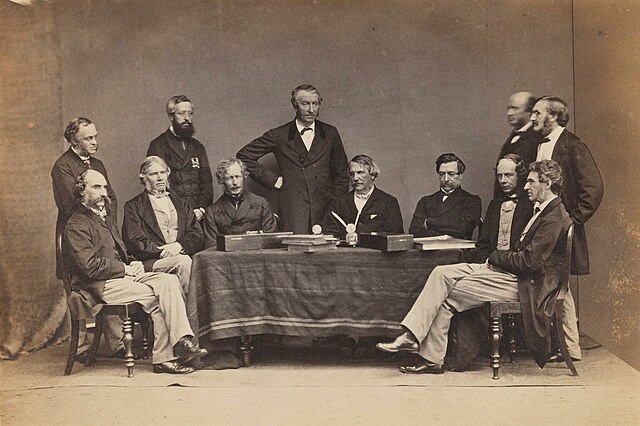Sir Henry James Sumner Maine,, was a British Whig comparative jurist and historian. He is famous for the thesis outlined in his book Ancient Law that law and society developed "from status to contract." According to the thesis, in the ancient world individuals were tightly bound by status dealing with(in) a particular group while in the modern one, in which individuals are viewed as autonomous agents, they are free to make contracts and form associations with whomever they choose. Because of this thesis, Maine can be seen as one of the forefathers of modern legal anthropology, legal history and sociology of law.
The young Maine
Maine, sitting second from right, with John Lawrence, Viceroy of India and other council members and secretaries in Simla, India, by Bourne & Shepherd, circa 1864.
Sir Henry James Sumner Maine, by Lowes Cato Dickinson, 1888.
Comparative law is the study of differences and similarities between the law of different countries. More specifically, it involves the study of the different legal "systems" in existence in the world, including the common law, the civil law, socialist law, Canon law, Jewish Law, Islamic law, Hindu law, and Chinese law. It includes the description and analysis of foreign legal systems, even where no explicit comparison is undertaken. The importance of comparative law has increased enormously in the present age of internationalism, economic globalization, and democratization.
Sir Henry James Sumner Maine, British jurist and first professor of comparative law at Oxford



